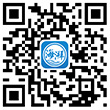Section B
Directions: In this section, you are going to read a passage with ten statements attached to it. Each statement contains information given in one of the paragraphs. Identify the paragraph from which the information is derived. You may choose a paragraph more than once. Each paragraph is marked with a letter. Answer the questions by marking the corresponding letter on Answer Sheet 2.
Resilience Is About How You Recharge, Not How You Endure
[A] As constant travelers and parents of a 2-year-old, we sometimes fantasize about how much work we can do when one of us gets on a plane, undistracted by phones, friends, or movies. We race to get all our ground work done: packing, going through security, doing a last-minute work call, calling each other, then boarding the plane. Then, when we try to have that amazing work session in flight, we get nothing done. Even worse, after refreshing our email or reading the same studies over and over, we are too exhausted when we land to soldier on with (继续处理) the emails that have inevitably still piled up.
[B] Why should flying deplete us? We’re just sitting there doing nothing. Why can’t we be tougher, more resilient (有复原力的) and determined in our work so we can accomplish all of the goals we set for ourselves? Based on our current research, we have come to realize that the problem is not our hectic schedule or the plane travel itself; the problem comes from a misconception of what it means to be resilient, and the resulting impact of overworking.
[C] We often take a militaristic, “tough” approach to resilience and determination like a Marine pulling himself through the mud, a boxer going one more round, or a football player picking himself up off the ground for one more play. We believe that the longer we tough it out, the tougher we are, and therefore the more successful we will be. However, this entire conception is scientifically inaccurate.
[D] The very lack of a recovery period is dramatically holding back our collective ability to be resilient and successful. Research has found that there is a direct correlation between lack of recovery and increased incidence of health and safety problems. And lack of recovery—whether by disrupting sleep with thoughts of work or having continuous cognitive arousal by watching our phones—is costing our companies $62 billion a year in lost productivity.
[E] And just because work stops, it doesn’t mean we are recovering. We “stop” work sometimes at 5pm, but then we spend the night wrestling with solutions to work problems, talking about our work over dinner, and falling asleep thinking about how much work we’ll do tomorrow. In a study just released, researchers from Norway found that 7.8% of Norwegians have become workaholics(工作狂). The scientists cite a definition of “workaholism” as “being overly concerned about work, driven by an uncontrollable work motivation, and investing so much time and effort in work that it impairs other important life areas.”
[F] We believe that the number of people who fit that definition includes the majority of American workers, which prompted us to begin a study of workaholism in the U.S. Our study will use a large corporate dataset from a major medical company to examine how technology extends our working hours and thus interferes with necessary cognitive recovery, resulting in huge health care costs and turnover costs for employers.
[G] The misconception of resilience is often bred from an early age. Parents trying to teach their children resilience might celebrate a high school student staying up until 3am to finish a science fair project. What a distortion of resilience! A resilient child is a well-rested one. When an exhausted student goes to school, he risks hurting everyone on the road with his impaired driving; he doesn’t have the cognitive resources to do well on his English test; he has lower self-control with his friends; and at home, he is moody with his parents. Overwork and exhaustion are the opposite of resilience and the bad habits we acquire when we’re young only magnify when we hit the workforce.
[H] As Jim Loehr and Tony Schwartz have written, if you have too much time in the performance zone, you need more time in the recovery zone, otherwise you risk burnout. Gathering your resources to “try hard” requires burning energy in order to overcome your currently low arousal level. It also worsens exhaustion. Thus the more imbalanced we become due to overworking, the more value there is in activities that allow us to return to a state of balance. The value of a recovery period rises in proportion to the amount of work required of us.
[I] So how do we recover and build resilience? Most people assume that if you stop doing a task like answering emails or writing a paper, your brain will naturally recover, so that when you start again later in the day or the next morning, you’ll have your energy back. But surely everyone reading this has had times when you lie in bed for hours, unable to fall asleep because your brain is thinking about work. If you lie in bed for eight hours, you may have rested, but you can still feel exhausted the next day. That’s because rest and recovery are not the same thing.
[J] If you’re trying to build resilience at work, you need adequate internal and external recovery periods. As researchers Zijlstra, Cropley and Rydstedt write in their 2014 paper: “Internal recovery refers to the shorter periods of relaxation that take place within the frames of the work day or the work setting in the form of short scheduled or unscheduled breaks, by shifting attention or changing to other work tasks when the mental or physical resources required for the initial task are temporarily depleted or exhausted. External recovery refers to actions that take place outside of work—e.g. in the free time between the work days, and during weekends, holidays or vacations.” If after work you lie around on your bed and get irritated by political commentary on your phone or get stressed thinking about decisions about how to renovate your home, your brain has not received a break from high mental arousal states. Our brains need a rest as much as our bodies do.
责任编辑:杨林宇
特别声明:本网登载内容出于更直观传递信息之目的。该内容版权归原作者所有,并不代表本网赞同其观点和对其真实性负责。如该内容涉及任何第三方合法权利,请及时与ts@hxnews.com联系或者请点击右侧投诉按钮,我们会及时反馈并处理完毕。
- 2019年12月英语四级真题及答案完整版(卷一/卷二/卷三)四级翻译写作范文听力阅读原文2019-12-20
- 2019年12月英语四级真题及答案完整版汇总 四级什么时候出分怎么查?2019-12-17
- 2019年12月英语四级答案完整版汇总!最新英语四级选词填空翻译作文真题答案2019-12-17
- 最新见多识广 频道推荐
-

2020各地开学开学时间表最新汇总 哪些地方延2020-03-12
- 进入图片频道最新图文
- 进入视频频道最新视频
- 一周热点新闻

































已有0人发表了评论